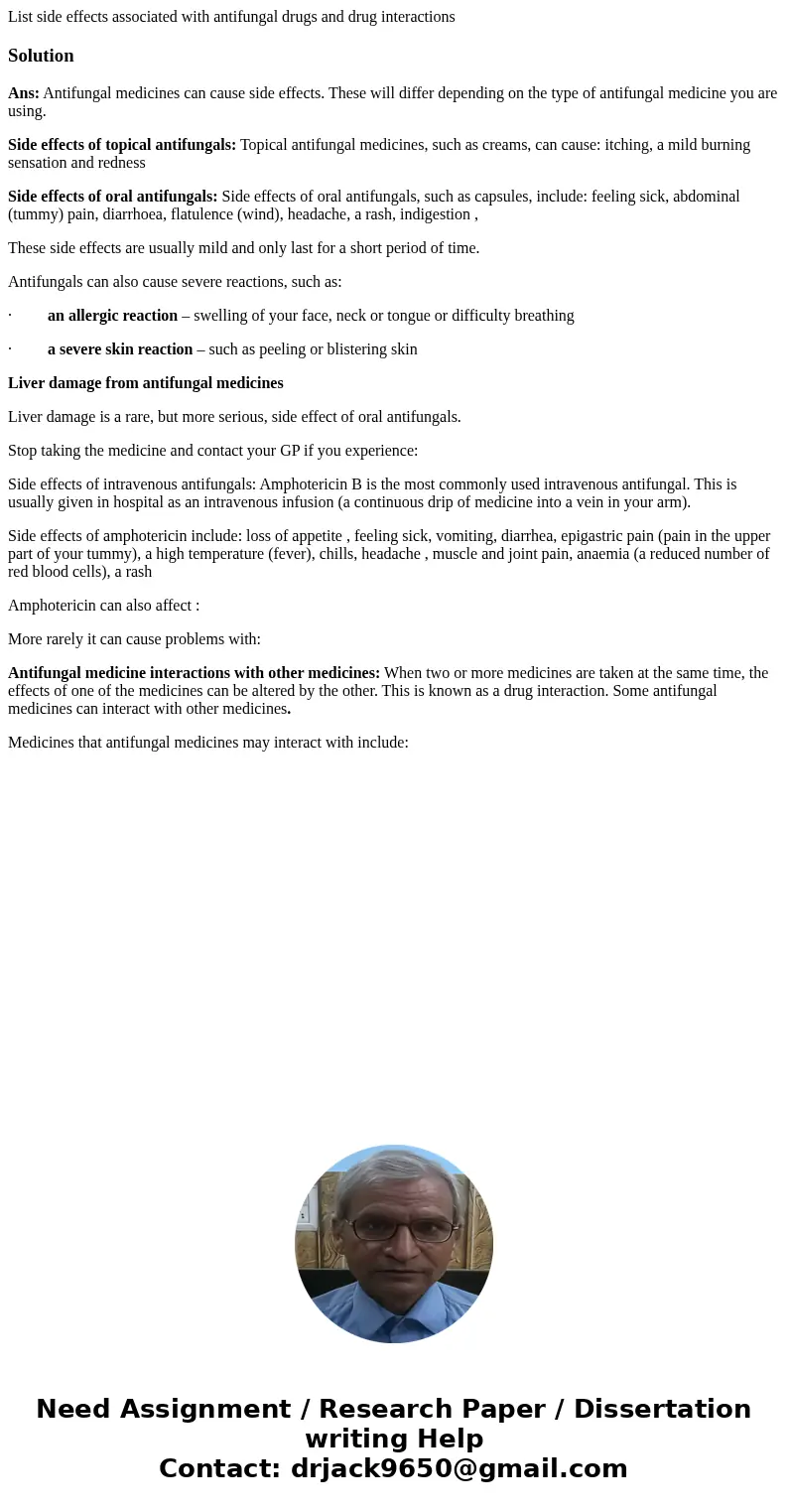List side effects associated with antifungal drugs and drug
List side effects associated with antifungal drugs and drug interactions
Solution
Ans: Antifungal medicines can cause side effects. These will differ depending on the type of antifungal medicine you are using.
Side effects of topical antifungals: Topical antifungal medicines, such as creams, can cause: itching, a mild burning sensation and redness
Side effects of oral antifungals: Side effects of oral antifungals, such as capsules, include: feeling sick, abdominal (tummy) pain, diarrhoea, flatulence (wind), headache, a rash, indigestion ,
These side effects are usually mild and only last for a short period of time.
Antifungals can also cause severe reactions, such as:
· an allergic reaction – swelling of your face, neck or tongue or difficulty breathing
· a severe skin reaction – such as peeling or blistering skin
Liver damage from antifungal medicines
Liver damage is a rare, but more serious, side effect of oral antifungals.
Stop taking the medicine and contact your GP if you experience:
Side effects of intravenous antifungals: Amphotericin B is the most commonly used intravenous antifungal. This is usually given in hospital as an intravenous infusion (a continuous drip of medicine into a vein in your arm).
Side effects of amphotericin include: loss of appetite , feeling sick, vomiting, diarrhea, epigastric pain (pain in the upper part of your tummy), a high temperature (fever), chills, headache , muscle and joint pain, anaemia (a reduced number of red blood cells), a rash
Amphotericin can also affect :
More rarely it can cause problems with:
Antifungal medicine interactions with other medicines: When two or more medicines are taken at the same time, the effects of one of the medicines can be altered by the other. This is known as a drug interaction. Some antifungal medicines can interact with other medicines.
Medicines that antifungal medicines may interact with include:

 Homework Sourse
Homework Sourse